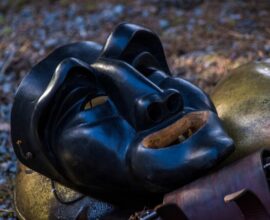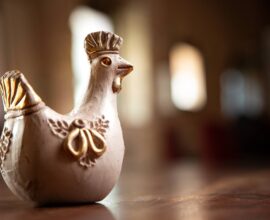Eucalyptus: the benefits and properties of the plant that perfumes the Forte Village garden
Eucalyptus, an ornamental plant with a unique scent.
Eucalyptus is an ornamental tree which leaves are particularly aromatic. They contain an essential oil with beneficial properties.
There is a place in Sardinia where the spectacular Mediterranean scrub mixes with the charm of exotic plants. It is the garden of Forte Village, the award-winning resort in Santa Margherita di Pula, near Cagliari. This garden is a real paradise on earth, where the fresh and intense scent of eucalyptus is everywhere.
Eucalyptus is a genus of evergreen tree plants that includes over 500 species and belongs to the Myrtaceae family. This family is the same as Myrtus, the common myrtle, a shrub typical of the Mediterranean basin from which berries people produce Mirto, the Sardinian liqueur par excellence.
Native to Oceania, especially Tasmania, Australia and New Guinea, and to the Philippines, the Eucalyptus genus was introduced to the West in 1770 by the English botanist Jose Banks. It was then first described in the book “Sertum Anglicum” by his French colleague Charles Louis L’Héritier. The plant spread rapidly and in Italy appeared in the catalog of plants of the Royal Palace of Caserta in 1803. Its name derives from the Greek eu, which means “good”, and kaliptos, that is “hide/cover”, in reference to the operculum that completely encloses the chalice in the flower bud.
Eucalyptus is a tree of considerable size. In fact, it can exceed 90 meters in height, as in the case of the Australian species Eucalyptus regnans. However, in Italy it usually do not exceeds 25-30 meters. Moreover, it can also be a shrub, reaching about 2 meters in height. The stem has a smooth ash-gray bark that comes off in thin and elongated plates, while the wood of the trunk has a reddish color.
The leaves are pendulous, leathery, aromatic and heterophile, that is, different in size, shape and color. In fact, the young branches have opposite, oval, tender and blue-green leaves. Instead, the other branches have alternate, dark green, intensely aromatic sickle-shaped leaves. The particular foliage, the pleasant scent and the resistance to cold and adversity make eucalyptus a perfect ornamental plant for public parks and private gardens.
The eucalyptus flowers are hermaphrodite, white or cream, gathered in umbrella-shaped inflorescences composed of 5-10 flowers with cylindrical peduncles. Instead, the fruit is a capsule with many small seeds inside.
The plant adapts to any type of soil, but prefers deep, soft, moist, well-drained and non-alkaline soil. Furthermore, to grow healthy and luxuriant it need a sunny position away from the freezing winds that could cause the leaves loss. Despite this, some species endure the brackish wind from the coasts and pollution.
In general, eucalyptus grown in the open ground withstand prolonged periods of drought, so rainwater is sufficient. In any case, it is best to water the younger plants at least every 2-3 weeks. On the other hand, plants in pots need moderate watering during the whole growing season, allowing the soil to dry well between the irrigations.
What are the benefits of eucalyptus essential oil?
The collection of eucalyptus leaves takes place between June and July or between September and October. They contain essential oil, phenolic acids, flavonoids and tannins. These compounds give the plant expectorant, balsamic, mucolytic, anti-inflammatory, antiseptic and balsamic properties.
How is the essential oil extracted? By steam distillation of adult leaves and fresh or partially dried twigs. Once ready, the oil can be vaporized in the air or used for aerosols.
Eucalyptus is a common ingredient in phytotherapy, herbal medicine and cosmetics and is useful for:
- disinfecting and purifying impure skin and oily hair;
- healing small wounds and soothing minor burns;
- counteracting inflammation of the urogenital and intestinal tract;
- fluidifying and eliminating bronchial secretions;
- fighting asthma, sinusitis, pharyngitis and neuralgia;
- treating blisters caused by chickenpox, cold sores and Saint Anthony’s fire;
- keeping away mosquitoes and other insects.
In Sardinia the eucalyptus is a characteristic element of the landscape, especially in the south-western area and along the entire coast. There are 3 possible landscape including Eucalyptus:
- woods with Eucalyptus;
- mixed formations of Eucalyptus and Mediterranean shrubs;
- windbreak bands.
The most cultivated species on the island are Eucalyptus camaldulensis and Eucalyptus globulus. However, in recent years, as reported by the Regional Agency Fo.Re.S.T.A.S. (Forestale Regionale per lo Sviluppo del Territorio e dell’Ambiente della Sardegna), numerous species have been introduced for ornamental purposes in particular along the coas, in tourist villages and villas by the sea.
It is important to remember that eucalyptus is an essential source of nectar for the survival of bees in Sardinia. Indeed, eucalyptus honey accounts for 50% of the total production on the island. Furthermore, the plant that today perfumes the garden of Forte Village Resort has a bond with the ancient Feast of Sant’Efisio. Together with wild mint, myrtle, juniper, lavender, helichrysum, mallow and rosemary, it was used for the suggestive Sa Ramadura rite.
Do you want to live a dream vacation in a real paradise? Discover the Forte Village Resort in Sardinia.






